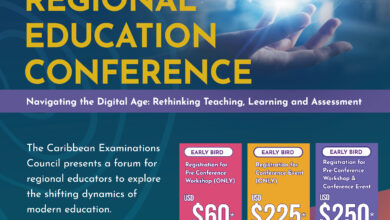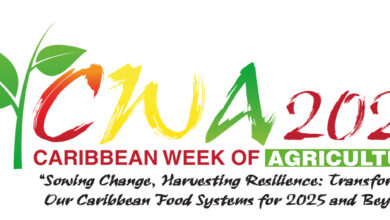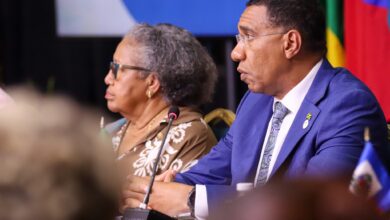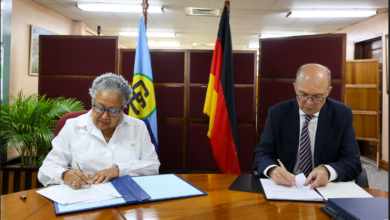(CARICOM Secretariat, Turkeyen, Greater Georgetown, Guyana) There is growing concern about the alarming levels of violence – particularly sexual violence – against the Caribbean Region’s most vulnerable – our children and our youth.
Regrettably, there is a dearth of empirical evidence on the nature, genesis, extent, causes and impact of this beast, hence the attempts to tame it has not spawned the desired outcomes. Violence against our Region’s children remains unabated.
The 2006 United Nations Secretary-General's Study on Violence against Children is arguably the most telling piece of empirical exposé on the magnitude of the problem, especially in the Caribbean. Its findings point to the disturbing fact that violence does not discriminate between rich and poor nations and pervades all societies within which children grow up. Sadly, the report notes that violence is part of the economic, cultural and societal norms that make up many children’s environment.
Another startling revelation is that violence in all its forms has its roots in issues such as the power relations between men and women, exclusion, absence of a primary care-giver; and in societal norms and values that often disregard the rights of children.
According to the Study, other factors contributing towards the unacceptable prevalence of violence against children include drug and alcohol abuse, unemployment and youth disenfranchisement, crime and a culture of silence and impunity. In addition, the internet is viewed as a new space where children are both abused and exploited by the production of pornography, and are exposed to images of violence and degradation.
The World Bank’s Caribbean Youth Development Report (2003) noted that the Caribbean had the earliest age of sexual “debut” in the world with many young people being initiated into sexual behaviour as a consequence of child abuse from as early as 10 years old, and in some cases even earlier. More recently, the 2009 UNICEF study on child sexual abuse in the Eastern Caribbean not only established that the problem is escalating in the sub-region but also identified emerging forms of abuse such as the use of young boys in an organized network to service cruise ship passengers.
But the most disturbing of these findings common to all the studies is that child sexual abuse in the region is shrouded in secrecy, aided and abetted by cultural ‘taboos’ and practices and in many cases, shame. It is the elephant in the room.
Add to that the frightening thought that much of this sexual violence occurs in institutions that were once perceived as safe havens or places of safety –in our orphanages, detention centres, in our schools, in our foster homes and in our homes.
Incest and child molestation committed by the familiar “dear friend” and other trusted authority figures is very often deemed a “private family matter” and ostensibly enjoy high levels of impunity while the victim – very often morphed into the villain – experiences irreparable social and psychological damage and is made to suffer in silence.
It is time to break the bellowing silence on one of the worst forms of human rights violations in the Caribbean. It is time to challenge decisively and concertedly, the deeply entrenched cultural practices and norms that condone violence and violate the rights of the region’s children. No longer can we ignore the elephant in the room.
It is this recognition that has prompted CARICOM Heads of Government at their just concluded 33rd regular three-day conference in Saint Lucia to emphasise the need for “concerted action, at ALL levels, to address the increasing challenge of child abuse – particularly sexual abuse.”
The Heads of Government have agreed that the issue needed an integrated response –
a “holistic approach that includes parenting education, public awareness and education, and legislative reforms to protect our Region’s children and to deal appropriately, not only with perpetrators, but also with those who support abuse through… non- reporting of incidents.”
They are therefore one-hundred percent behind the decision taken by the Council for Human and Social Development to address the vexing issue at their 23rd meeting in Georgetown, Guyana on Tuesday and Wednesday.
Convened under the theme: Charting our future: an integrated development agenda for children and youth, the COHSOD Meeting will tackle issues ranging from early childhood care and development; to children and migration; to youth employment and development. But these issues will all strike a chord in the chorus for an integrated development agenda that can chart the future of our children and youth and provide for them a safer and more enabling environment in which they can grow and develop.
One of the challenges facing the Region, at this time, is inadequate legislative framework, public policies and programs to protect children and youth from violence. The concerns of Ministers with responsibility for children and youth at this two-day meeting therefore, will be how to strengthen existing policies, introduce and expedite national legislation and devise sustainable interventions to abort all forms of violence against children.
The Meeting will also look at the grievous problem of school violence and its deleterious social and personal impact; and of course, explore “anti-violence intervention strategies as well as recommendations for a zero-tolerance policy on school violence.”
Gender-Based Violence is another thorny issue. The CARICOM Gender Advocate, Dr. Rosina Wiltshire is expected to present the conclusions of two years of research on Youth masculinities and violence in the Caribbean. Hopefully, this study will provide some unequivocal policy recommendations that focus on institutional responses, education and social welfare systems and “increasing individual reporting and public awareness of the problem.”
Another challenge that limits the Region’s capacity to combat the dreaded disease of violence against children is the lack of information and data collection systems that would inform effective planning and implementation of appropriate violence prevention strategies. In addition to this, there is a need for appropriate mechanisms to track, monitor and evaluate Member States’ commitments and programmes. In this regard, the COHSOD Meeting will need to examine how they will develop such mechanisms and how to consolidate systematic collection of data and research “to break the invisibility of violence and inform child sensitive policy and action.” The existing Regional Framework for Action for Children should provide some valuable lessons on how to contend with this challenge.
But there’s yet another elephant in the room.
There is the controversial and rather sensitive issue of corporal punishment – a practice which many in the region balk at letting go because they perceive it as “discipline.” The banning of corporal punishment is one of the key recommendations of the 2006 UN Secretary-General’s Study. In keeping with the United Nations Convention on the Rights of the Child (Articles 19, 28(2) and 37) which all CARICOM Member States have ratified, children – wherever they are – should be protected from corporal punishment. This, however, is the sentiment rather than the reality in several of our region’s schools, especially at the primary level. The COHSOD Meeting intends to address this sticking point and hopefully arrive at a consensus on legal and other measures to stamp out corporal punishment. This will be one of the ‘tall orders’ on what is perceived as an ambitious two-day agenda.
This 23rd COHSOD Meeting has some tough decisions to make regarding the Region’s approach to protecting its most valuable resources – its children and youth. The meeting is a conversation of decisions and actions that cannot end on Wednesday, but must persist until we “cork” the churning bitter mix of violence against our children in the Caribbean region.





